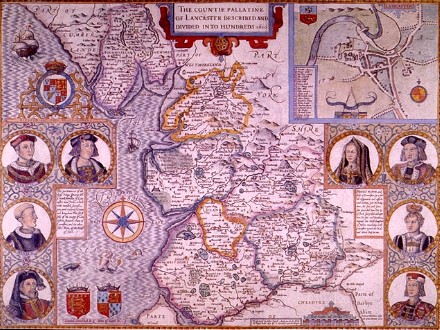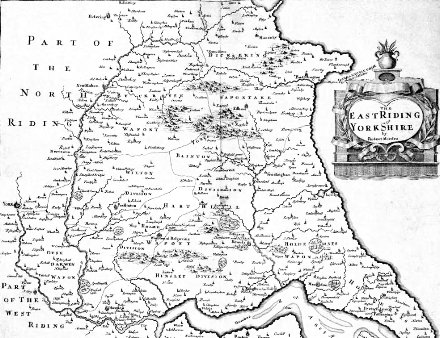
About Andrew Cusack
 Writer, web designer, etc.; born in New York; educated in Argentina, Scotland, and South Africa; now based in London.
Writer, web designer, etc.; born in New York; educated in Argentina, Scotland, and South Africa; now based in London. read more
News
Blogs
Reviews & Periodicals
Arts & Design
World
France
Mitteleuropa
Knickerbockers
Argentina
The Levant
Africa
Cape of Good Hope
Netherlands
Scandinavia
Québec
India
Muscovy
Germany
Academica
County Confusion
The Permanent Revolution in Modern Britain
 ONE OF THE CURIOUS things about folks in Britain today is that they are not too sure about where they live. And often, when they are sure, they’re not entirely correct. I have a friend from Abingdon in England and for ages she told me that she was from Abingdon in Oxfordshire. Imagine my surprise to discover that Abingdon is not only in Berkshire, but it’s traditionally the county town of Berkshire! The trouble originates in the reforms of local government which have ensured perpetual confusion amongst the populace, and have been pretty much ongoing for the past forty years — an example of permanent revolution that would make Fidel Castro envious.
ONE OF THE CURIOUS things about folks in Britain today is that they are not too sure about where they live. And often, when they are sure, they’re not entirely correct. I have a friend from Abingdon in England and for ages she told me that she was from Abingdon in Oxfordshire. Imagine my surprise to discover that Abingdon is not only in Berkshire, but it’s traditionally the county town of Berkshire! The trouble originates in the reforms of local government which have ensured perpetual confusion amongst the populace, and have been pretty much ongoing for the past forty years — an example of permanent revolution that would make Fidel Castro envious.
The counties of England were created quite shortly after the beginning of time. The ancient sages debated voiciferously whether the Author of Creation initiated them on the eighth or the ninth day. (Curiously, the Venerable Bede is not known to have taken either position). They remained completely and utterly unchanged until the Victorians (a cohort quite bent on the idea of civic improvement) had a fiddle with them in the 1880s. From then, there were only periodic adjustment until the 1960s, when the forces of cultural revolution (the monotony monitors, as my old Latin teacher called them) demanded change in every quarter. The counties of England, sadly, did not escape their Sauronic all-seing eye.

Lancashire, in better days.
The real problem which arose was that the traditional counties were, thankfully, never abolished, but that administrative units were created which often shared the same name as an historic county, but with different boundaries. Despite the fact that the county didn’t change, the movement of cities, towns, villages, hamlets, barns, and rabbit warrens between various administrative units brought much confusion as to whether a given location which was in one particular place or another. Thus the people of the previously self-governing Bootle in Lancashire found themselves merged into the metropolitan district of Sefton, which itself became part of the metropolitan ‘county’ of ‘Merseyside’. Meanwhile, the southern part of Gloucestershire and the northern part of Somerset were merged into a new ‘county’ created ex nihilo and baptised with the name of ‘Avon’. So a town could be in real Somerset but administrative Avon. All a bit maddening and confusing.

The East Riding of Yorkshire, in which Hull is located.
What’s worse, however, is that there are some misinformed people who believe that with the change in the units of governmental administration, the traditional county boundaries are somehow different. Only recently on this very site, a lady falsely corrected another commenter saying that “Liverpool is in Merseyside, not Lancashire”. But Liverpool is in Lancashire, as it is also in Merseyside. Late last year, Joanna Bogle mentioned Hull on her blog, quite correctly, as being in Yorkshire. Lo and behold, a gentleman chimed in “Sorry to nitpick, Joanna, but Fish City happens to be in Humberside, not Yorkshire.” I felt compelled to reply:
The Local Government Act 1972 did not abolish nor did it replace the traditional counties (with their traditional names and traditional boundaries), it merely created another set of administrative units, some of which were known as counties and others districts.
Thus Hull was and is in the East Riding of Yorkshire though it is not part of the unitary authority (another reform) which is also known as the East Riding of Yorkshire, since the city was made a unitary authority in its own right.
The confusion over what is in which county is widespread. To add to this confusion, there are a third set of county boundaries invented by the government, known as ‘ceremonial counties’, which each have a Lord Lieutenant.
It’s all quite silly, if you ask me. They never should have changed them, but having changed them, they feel the need to keep on changing them. That’s modernization for you!
The perpetual changes to local government, naturally, were continued under ‘New Labour’ with the Local Government Act 2000. Tony Blair wants to change Britain into America in every way it shouldn’t (i.e. the continued destruction of tradition and increasing centralization) and is against changing Britain into America in every way it should (i.e. lowering crime rates and protecting individual liberties). Among myriad other changes, the 2000 Act provided for the direct election of mayors, in direct contravention of the traditional British way of mayors being selected by councils after being agreed to in a committee-like fashion. Before the peasants could hone their pitchforks and ready their torches, an added proviso submitted this particular proposal to local referendums, and the overwhelming majority of direct-mayor initiatives were soundly defeated by the common sense of the people.
Nonetheless, awareness of traditional counties is at a distinct low point, and splendid organisations such as the Association of British Counties (“Saving Our Shires”) and the more extreme CountyWatch exist to preserve and protect the status of the traditional counties throughout Britain, while more particular groups such as the Friends of Real Lancashire, the Yorkshire Ridings Society, the Huntingdonshire Society, and so on and so forth exist to remind inhabitants of their county’s existence.
Search
Instagram: @andcusack
Click here for my Instagram photos.Most Recent Posts
- Bicycle Rack April 29, 2024
- Burns Tower April 19, 2024
- Patrick in Parliament March 18, 2024
- Articles of Note: 13 March 2024 March 13, 2024
- Cambridge March 9, 2024
Most Recent Comments
Book Wishlist
Monthly Archives
Categories



Mr. Cusack:
I would be appalled if the Feds attempted to do the same thing here Stateside. The Federal Government, however, has arrogated to itself the power to assign names to all geographic entities within the Republic. One day you may wake up and find that you live within “Administrative District Number 3”, and not in your beloved New York State.
The United States Board on Geographic Names is currently busy eliminating the politically incorrect name “Squaw” from our national gazetteer, under the false belief that this word means “prostitute” and not “woman”.
Beastly, eh wat? In protest, I will now refer to my current home city as New Amsterdam to confuse things further. Cusack, care to join?
Does not this put one in mind of the Napoleon of Notting Hill?
“His Majesty then went on to explain that, now old age was creeping
upon him, he proposed to devote his remaining strength to bringing
about a keener sense of local patriotism in the various municipalities
of London. How few of them knew the legends of their own boroughs!
How many there were who had never heard of the true origin of the Wink
of Wandsworth! What a large proportion of the younger generation
in Chelsea neglected to perform the old Chelsea Chuff! Pimlico no
longer pumped the Pimlies. Battersea had forgotten the name of Blick.”